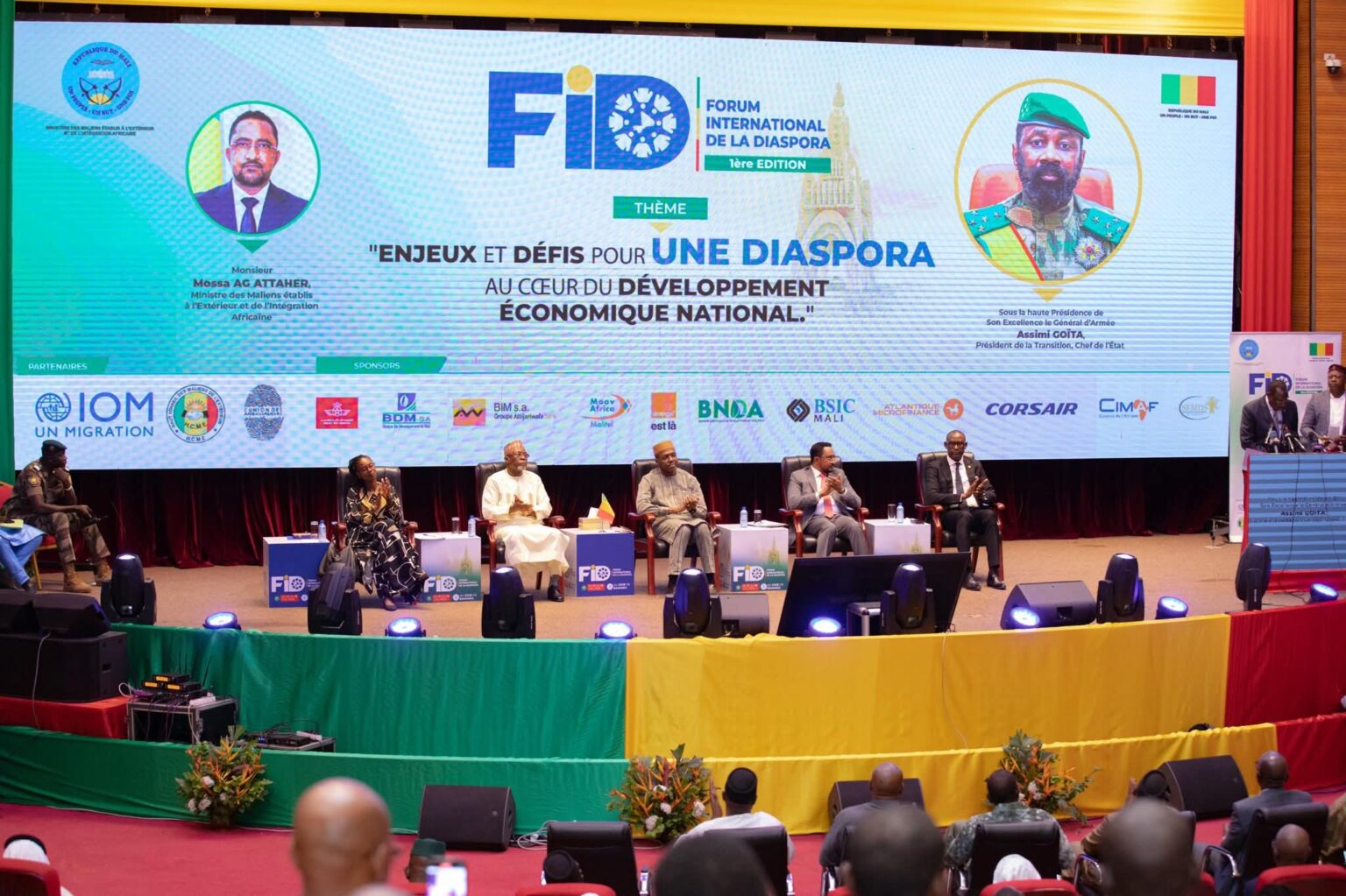Mali eyes long-term growth as diaspora transfers hit record CFA 700 billion in 2023

The Malian diaspora sent home nearly 700 billion CFA francs (approximately $1.15 billion) in 2023—contributing 5% of the nation’s GDP—according to the World Bank, as revealed at the inaugural International Forum of the Malian Diaspora, which opened in Bamako on 17 July.
Presided over by Prime Minister General Abdoulaye Maïga, the forum brought together delegates from 77 countries under the theme “Challenges and Opportunities for a Diaspora at the Heart of National Economic Development.
“ The gathering emphasized the vital economic role played by Malians living abroad and their potential to drive sustainable national growth.
Data from Mali’s Ministry for Malians Abroad, the International Organization for Migration (IOM), and the Rabat Process estimate the Malian diaspora at four to six million people.
Over half reside in West Africa—including Côte d’Ivoire, Senegal, Mauritania, and Niger—while others are dispersed across Europe (France, Spain, Italy) and North America. The community includes migrant workers, entrepreneurs, dual nationals, and highly skilled professionals.
In his keynote address, Prime Minister Maïga praised the diaspora’s engagement and highlighted the significant impact of remittances on household consumption, social services, and collective development initiatives.
He stated, “The remittances reached nearly CFA 700 billion in 2023, strengthening local economies and social cohesion across regions.”
Seeking to channel these financial flows into long-term development, the government announced several initiatives.
These include the creation of a one-stop investment service within Mali’s Investment Promotion Agency (API-Mali), the launch of a national diaspora investment strategy, and fiscal incentives to support economic ventures.
A feasibility study is also underway to establish a dedicated investment bank for Malians abroad.
Institutional reforms are also in progress. The 2023 Constitution grants the diaspora formal representation in both chambers of Parliament—an effort to translate financial commitment into political inclusion.
The forum, attended by several cabinet ministers, Niger’s Foreign Minister, the IOM’s regional director, and various development partners, underscored the importance of strengthening ties between the state and its citizens abroad.
In his closing remarks, the Prime Minister stressed, “We must move beyond diagnosis and act, building a durable relationship rooted in trust and reciprocity.”
Over three days, delegates are expected to address topics including migration governance, skills transfer, and the removal of administrative and financial barriers to diaspora-led investments.
Amid security and economic challenges, Mali views its diaspora not just as contributors—but as essential partners in shaping a more resilient and inclusive future.
About The Author
dailymailafric
I am an avid African news observer, and an active member of Daily Mail Africa.
I’m Passionate about staying informed on diverse topics across the continent,
I actively contribute to publishing on political, economic and cultural developments in Africa.



